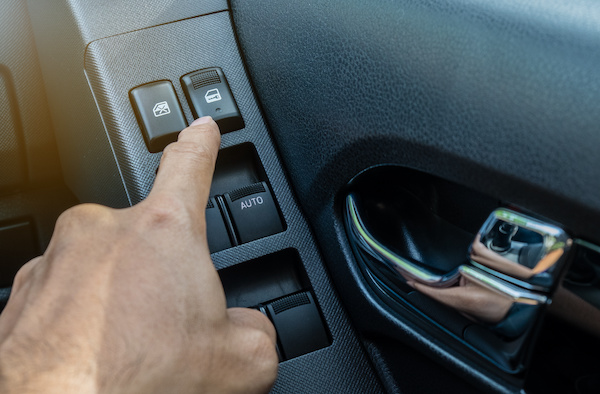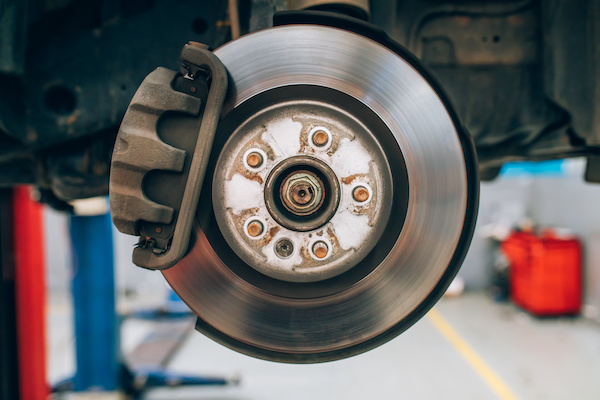Posted on 10/20/2021

Whether your vehicle is new or old and adequately maintained, it is meant to drive smooth and steady. However, at one point or another, people can experience steering wheel vibrations. Steering wheel shakiness often indicates that there's a problem and some part needs to be replaced. Common Causes for Steering Wheel Vibration Your steering wheel is connected to both your car and the road, which is why your steering wheel is the first to show warning signs. The top reasons for an unstable wheel while driving is: Tires – As you may know, the steering wheel is used to direct the wheels. When tires are unbalanced, you will feel it in the steering wheel, especially at higher speeds than lower ones. The inflation of the tires can also affect your drive. For instance, a deflated tire can cause a steering wheel to shake due to the lack of air and can cause a blowout too. Furthermore, misaligned wheels can also produce vibrations. Wheel – Another common culprit ... read more
Posted on 9/27/2021

If you're a Georgia resident, you know that we are hard-core football fans. With the season starting, you can expect tailgates to be a regular weekend routine. At Tri-Star Automotive, we love a good tailgating party. However, if you are tailgating with your vehicle, then you should make sure your car (especially its battery) is in good condition to handle game-day situations. One of the most common mistakes we see is people draining their car battery in a tailgating lot. Here are our top tips to avoid dealing with a dead battery on game day! CLEAN YOUR CAR BATTERY TERMINALS. You can maintain your vehicle battery with a super simple DIY. You should clean your car battery the night before game day to ensure a strong connection. Your battery terminals should be free of corrosion to maintain a steady current electrical flow for the entire event. BUY A TRICKLE CHARGER. If your tailgating vehicle of choice needs a battery boost, then you could consider purchasing a charger. Trickle cha ... read more
Posted on 8/23/2021

Power windows were merely introduced 81 years ago in 1940, but they quickly became a common accessory in many modern cars, SUVs, and trucks. Unlike more old-fashioned window systems, which required passengers to turn a crank handle to raise or lower windows manually, power windows operate with the simple flip or push of a button. Because this window feature relies on electricity to function, most do not work once a vehicle is turned off. However, some cars have a time delay that allows drivers and passengers to continue operating the windows for a short period after the engine stops. Power windows are made to be very easy to trigger, which is why there is a lock feature that drivers can use to prevent other riders, such as small kids, from spontaneously opening or closing the windows. Power Window Repair Services in Tyrone, GA If your power windows are acting unusual or entirely unresponsive to their controls, please have it checked out soon. Though it is not necessary to kee ... read more
Posted on 7/21/2021

Brake failure can cause horrific vehicle accidents, which is why we stress regular brake checks, maintenance, and repair. Your brakes must always be well-functioning. As a necessary car component, there have been significant advancements in the braking system over the years with the development of new technologies. The most prominent types of brakes today are drum and disc brakes, which differ significantly. Drum Brakes Although drum brakes still exist in some cars today, they are older versions of brakes that feature a simplistic design with low manufacturing costs. They are primarily made from cast iron and function by forcing the two arched shoes placed within the drum. Whenever the driver presses the brake pedal, brake fluid is pushed into the drum brake constraining the pistons to press against the drum surfaces. The interference results in the slow spinning of the wheels and eventually brings the car to a complete stop. Disc Brakes Disc brakes are advanced bra ... read more
Posted on 6/23/2021
.jpeg)
Visible corrosion is one of the common signs of battery terminal problems. It can interfere with the free flow of power within the battery and, in worst cases, block it altogether. Mostly, the corrosion appears like a white, bluish, or green substance on your car battery cables, posts, or terminals. The white-colored substance you observe can either be anhydrous copper sulfate or lead sulfate. Suffice to say, the former will eventually turn blue once exposed to moisture. The corrosion on your battery is a poor electrical conductor and tends to increase the resistance in the circuit. If not timely repaired, the resistance translates to transient current flow, which will ultimately prevent your car from starting. So, What Causes Battery Corrosion? Ideally, battery corrosion results from the hydrogen gas released by sulfuric acid present within the battery. As the gasses react with the ambient atmosphere, such elements as salts and moistures act as catalysts, speeding the process. The r ... read more